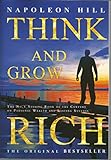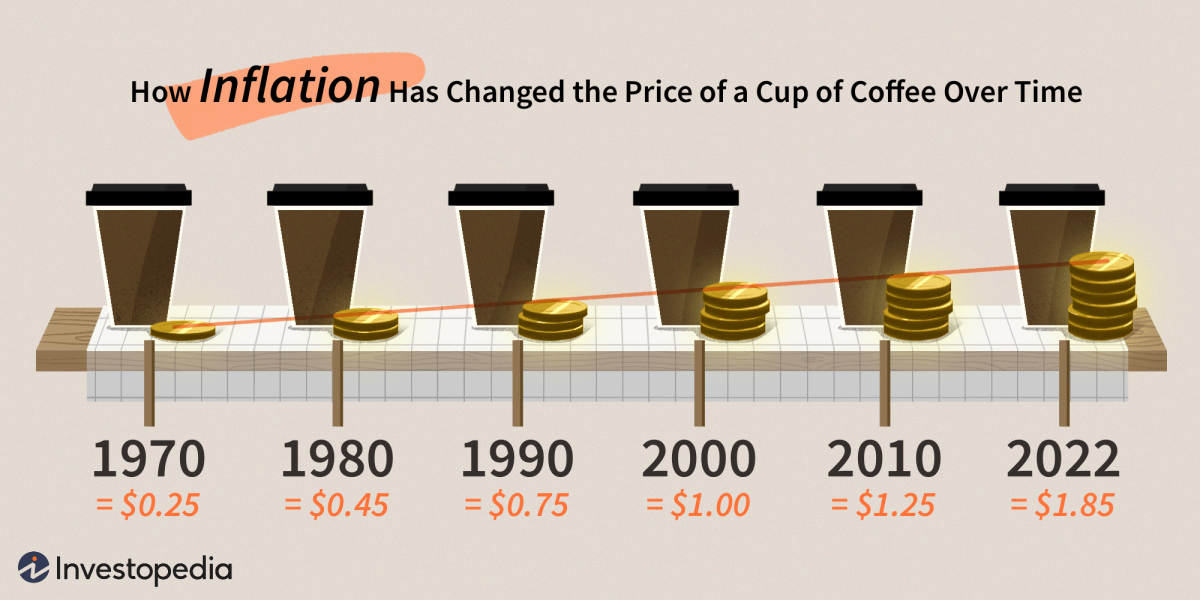Become Financially Independent

Will giving up your daily caffeine fix really save enough money to become financially independent? Will bringing a brown bag lunch to work really lead you down the road to early retirement? To be sure, making these small adjustments to your lifestyle and investing the savings will increase your net worth by a substantial amount in 20 or 30 years, and may be the difference between being able to retire at age 63 or 64 instead of age 65. But to move the needle on becoming financially independent or retiring early, concentrate on controlling your major life purchases.
The major life purchases for most people include their houses, automobiles, vacations and insurance. Most people’s purchasing decisions are also closely related to their decisions about children and colleges. Over their working careers, controlling these major life purchases will have a much greater impact on becoming financially independent or retiring early than how often you frequent Starbucks.
Houses
For most people, buying a house is the largest purchase they’ll ever make. To decide how much to spend on a house, a common rule of thumb is that the mortgage, taxes and insurance on their house should not exceed 28% of their monthly income. If you want to become financially independent or retire early, then you should certainly follow this rule and avoid spending above 28% of your income.
Unfortunately, many people misinterpret this rule of thumb by effectively eliminating its “should not exceed” language. In other words, many people believe they should ideally spend 28%--no more and no less--of their income on housing. This misinterpretation may have worked quite well during the housing boom as people bought as much house as they could afford and then benefitted from the appreciation. But in normal markets, where the prices of houses typically appreciate at about the rate of inflation, this misinterpretation often causes people to spend more on their houses than needed to meet their needs. If you want to become financially independent or retire early in a normal housing market, it’s better to try to buy a house that meets your housing needs for less than 28% of your income, and then invest the difference in investments such as stocks and bonds that typically appreciate at a rate above inflation.
Another way to control housing costs is to simply live in your house for a longer period of time rather than frequently trade up to a different house. After all, once you factor in real estate commissions and the laundry list of closing costs for buying and selling a house, you will probably lose 10% of the value of your house each time you move. Just think about how long you’d need to work to save up that 10%!
Yet another way to control housing costs is to live in an area where the costs of housing are inexpensive relative to household incomes. If you earn more while paying less, you’ll have more money to invest in appreciating assets like stocks and bonds. While moving to a new area may not be possible for some people due to family or other ties, it’s a good option for many people without strong ties to a particular area who desire to spend less on their housing without adversely impacting their standard of living.
Automobiles
In 2012, the average selling price of a new car in the US is $30,748, according to TrueCar.com. That’s an all-time record, up from $28,771 in 2011. When you consider that the average person owns 12 cars in their lifetime, we spend a lot on our cars. That’s especially true when you consider that new cars are depreciating assets, typically worth 10% less than we paid as soon as we drive them off the car lot.
One of the best ways to control car costs is to purchase used cars instead of new cars. By purchasing a late-model used car, you avoid that 10% hit your seller absorbed in exchange for that new-car smell. You will also decrease other expenses associated with your car, such as your automobile insurance and personal property taxes (for people residing in states with personal property taxes on automobiles).
Another way to control car costs is to drive your car for more years before trading it in or selling it. Luckily, today’s cars are better than ever, and it’s common for cars to remain reliable for more than 10 years and 100,000 miles. Many people are able to keep their cars running well past 200,000 miles. By keeping your cars longer, you’ll have more time without any car payments. Further, once your car is more than 5 or 6 years old, consider dropping your collision insurance coverage to save even more.
An effective way to control car costs is consider transportation costs when you decide where to live. One of the root causes of the housing crash was the popularity of new housing developments in far-out communities (the “exurbs”). These homeowners faced long commutes, and were unable to absorb their high commuting costs when the cost of gas skyrocketed at the same time their incomes stagnated. By living in areas where you can walk, take public transportation, or have only a short commute, you can control your car costs and put the savings towards becoming financially independent or retiring early.
Vacations
The average cost of a vacation is $1600, according to AAA and Money Magazine. Many families spend substantially more than this amount by going on more than one vacation per year, or going on a more extravagant trip that can easily cost $5000 or more. Still other families spend a significant portion of their incomes on vacation homes, which sold at a median price of $150,000 in 2010, according to the National Association of Realtors. And this does not include the substantial costs to maintain these properties, travel to and from them, or pay their property taxes. When you multiply these annual costs by 20 or 30 years and consider the lost investment income, it could easily fund years of retirement.
Luckily, vacation costs are among the easiest to control because they are almost entirely discretionary (except for the mandatory ongoing costs for people who have bought vacation homes or timeshares). There are many ways to control vacation costs. You can stay closer to home by picking destinations where you can drive rather than fly. You can stay at a less luxurious property. You can limit your vacations to once per year or once every other year. You can rent a vacation home rather than buy one.
How much to spend on vacations is of course a very personal decision, and there’s much to be said for “you only live once” when deciding whether to visit Hawaii or the Australian outback. Just make sure you realize how the costs will impact your ability to become financially independent or retire early.
Insurance
In contrast to vacations, insurance costs are among the hardest to control because they are almost entirely mandatory. It’s important to have adequate health, life, disability, homeowners and auto insurance to prevent the possibility to losing your lifetime savings to a single accident or misfortune.
There are, however, ways to effectively control your insurance costs. For health insurance, investigate if a less expensive managed-care option such as a Health Maintenance Organization (HMO) is available that still covers your preferred medical providers, and look into if you can save money by buying a high-deductible health insurance policy linked to a tax-advantaged health savings account. For life insurance, use an online calculator to determine how much coverage you need, and then do an online search to find the cheapest premium for that amount if it’s not available through your employer. Luckily, the life insurance market is extremely competitive, and rates are lower today than years ago. For homeowners and auto insurance, get quotes from several providers, and look at insurance offered by organizations to which you belong, such as AAA, a professional organization or a union. You might save 10 or 20% simply by bundling your homeowners and auto insurance with one company. Also consider if you can accept the risk of higher deductibles in exchange for lower premiums, or if an umbrella policy would make sense. Finally, be sure to have enough disability insurance to take care of your family in the event you are injured and unable to work—which is statistically much more likely than your untimely demise.
Nothing could hurt your progress towards financial independence or early retirement as much as not having the right insurance in place. But there’s no reason not to shop around to minimize its costs.
Children
According to the U.S. Department of Agriculture, the cost of raising a child from birth to age 18 for a middle-income family with two parents was $226,920 in 2010. And that figure does not include college, or the many other costs that will be incurred before the child become financially independent. Thus, there are probably no other decisions that will impact your financial independence or ability to retire early as your decisions about whether to have children and, if so, how many children to have.
Of course, your children will probably also bring you more joy than anything else in your life (at least if we disregard those pesky teen years). So few people make child-rearing decisions based solely on cost concerns. But are still ways to try to control your child-rearing costs. The most important choice is how many children to have. While it was common to have three or four children back in the 1950s and 1960s, it’s perhaps less common today due partly to the substantially increased costs today. Beyond the number of children, you can also decide to live in a less pricy area where you can buy a larger home at a lower cost or in an area with satisfactory public schools in order to avoid the price of private schools. You can also decide on what type of lifestyle your family will lead. For example, you can decide your family members will share a home computer rather than have individual ones for each person.
Colleges
One of the easiest to control of life’s major purchases is colleges, both for yourself and for your children. While some people decide to attend their “dream” college without considering its financial implications, you should decide on colleges by making the same type of cost vs. benefit calculations you make for any other major purchase. On the cost side, take into account the impact of any financial aid including scholarships. On the benefit side, decide if attending a more expensive school will provide any financial benefit in comparison to attending a less expensive school. For the most part, you’ll get the best return on your investment by attending a good state school where the state is subsidizing the costs. There may be exceptions, such as where attending a more expensive school will lead to better job prospects with the promise of higher incomes. If so, compare the increase in expected income to the increased costs to make sure you’ll be making a productive investment rather than simply spending more money.







